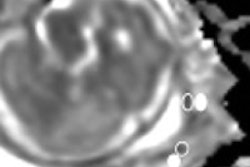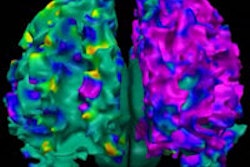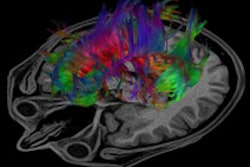Using diffusion MRI, researchers from King's College London have found that the disruption of crucial developmental processes in the brain due to premature birth can negatively affect cognitive function. Study results were published online May 21 in Proceedings of the National Academy of Sciences.
By analyzing the cerebral cortex of 55 premature infants and 10 babies born at full term, the researchers were able to map the growing complexity and density of nerve cells across the entire cortex in the months before the normal time of birth.
MR images revealed that brain maturation during this period was most rapid in areas related to social and emotional processing, decision-making, working memory, and visual-spatial processing.
These functions are often impaired after premature birth, and the researchers found that cortical development was reduced in preterm compared to full-term infants, with the greatest effect in the most premature infants.
When the study re-examined the infants at 2 years, preterm infants with the slowest cortical development performed less well on neurodevelopmental testing, demonstrating the longer-term impact of prematurity on cortical maturation.
"The findings highlight a key stage of brain development where the neurons branch out to create a complex, mature structure," said Dr. David Edwards, director of the Centre for the Developing Brain at King's College London, in a statement about the study.




















